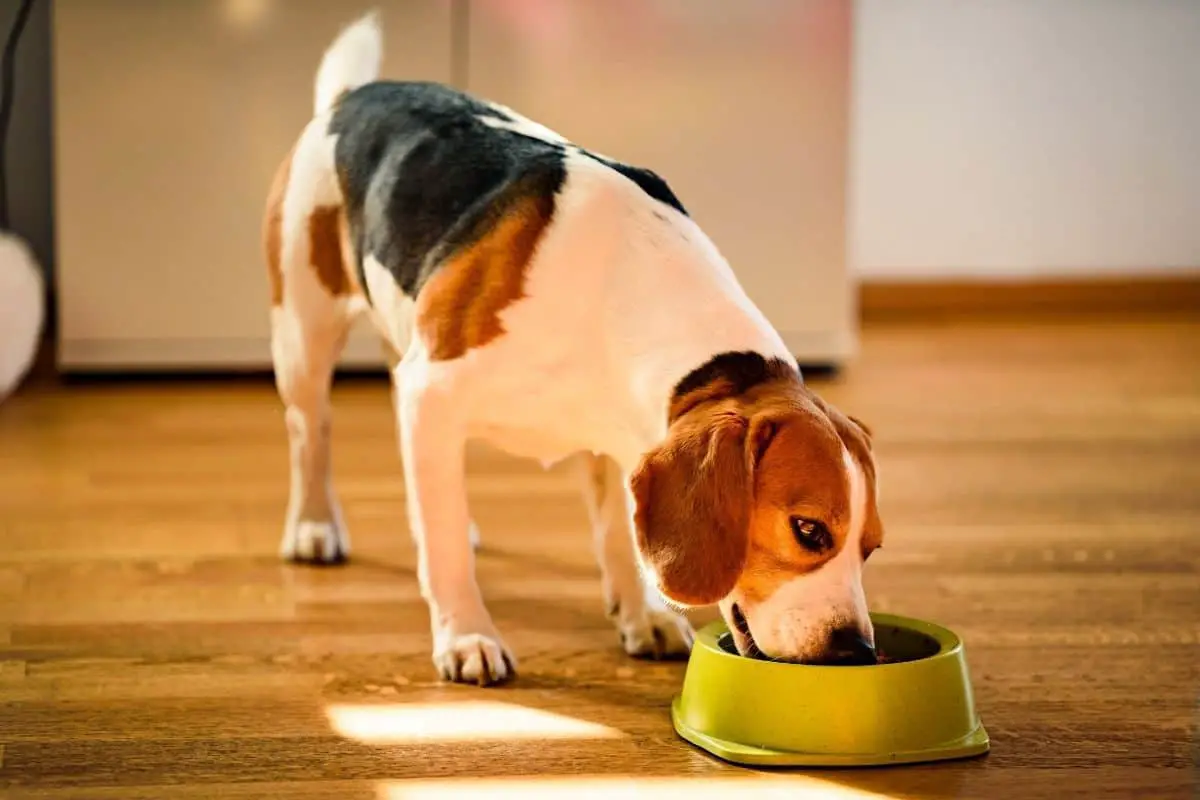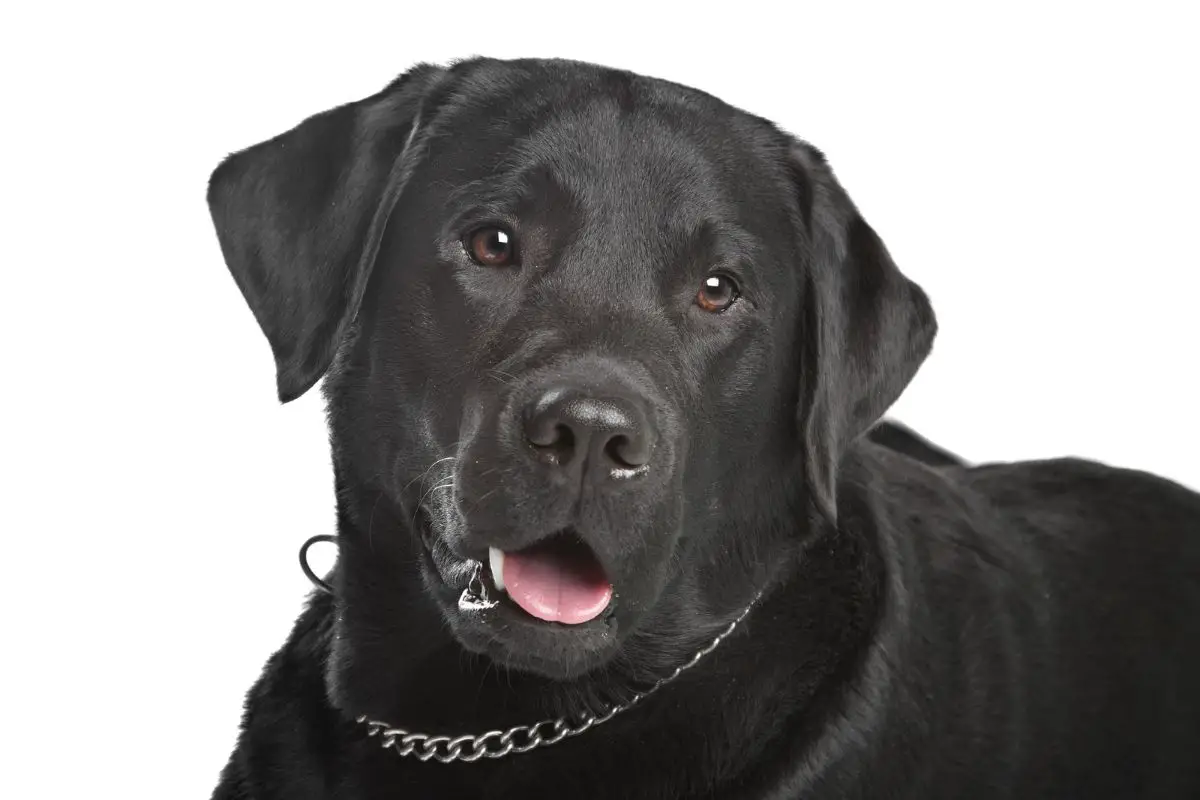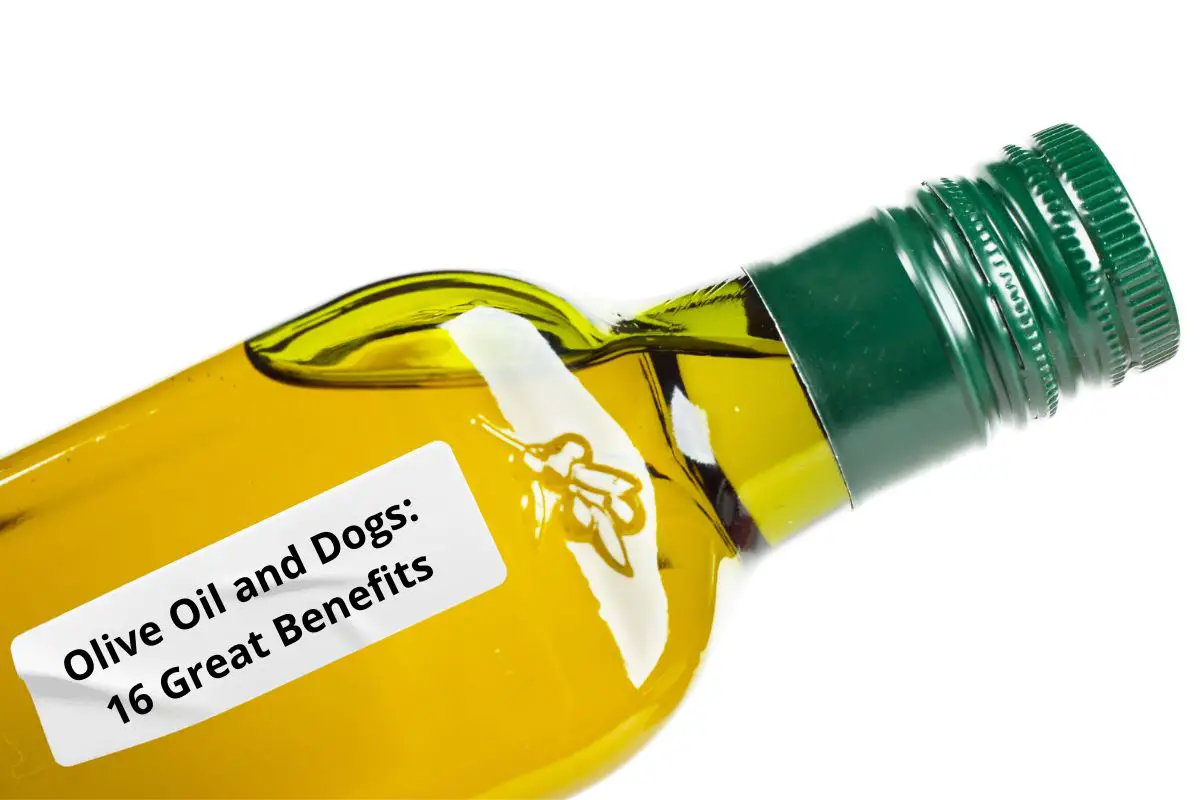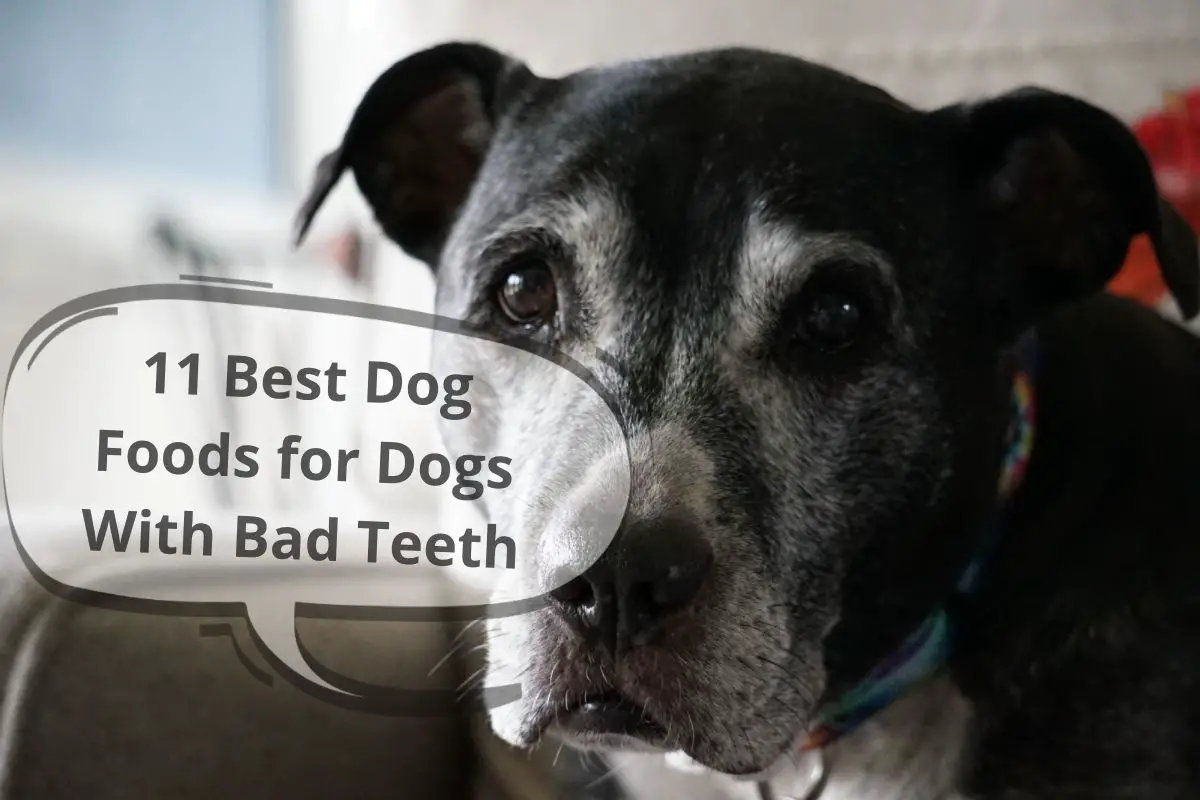This post contains affiliate links.
A study revealed that the prevalence of diarrhea in dogs was mainly attributed to the type of food that a dog eats. There are many choices for choosing the best dog food, such as canned, dry, and semi-moist. The best foods should be delicious, lean, safe, and offer good nutrition.
Canned dog food is great for fussy eaters and gives your pet a hydration boost. However, abruptly changing your dog’s diet to canned or wet foods can lead to diarrhea. Feeding your dog canned foods with harmful ingredients can cause stomach upsets and acute diarrhea.
As the dog parent, it is your responsibility to give your dog the best canned food with the right ingredients. However, the many canned food options available today may be overwhelming. Thus, this guide will take you through what you need to know before purchasing any canned dog food product to protect your pooch from diarrhea or a runny stomach.
Table of Contents
Does Canned Food Cause Diarrhea in Dogs?
When you own a dog, you will have to accept that diarrhea is part of a dog’s life. Diarrhea is an occasion when your dog suffers from sessions of loose stools. It is more prevalent in puppies than dogs. Diarrhea in dogs may be mild and short-term, or it may be severe and get worse. In this case, every minute counts, and you should seek medical assistance immediately.
Often, diarrhea is a result of an illness, but your dog’s diet may cause it at certain times. This may be from eating spoiled food, overeating, or eating from a garbage pit. Canned food can also cause diarrhea. Additionally, your dog may eat or be fed with something they should not have eaten, and this often causes a stomach upset or diarrhea.
In other cases, their regular canned food may contain certain ingredients that your dog may be allergic or intolerant to. In the same light, abruptly changing your dog’s diet to canned foods can lead to a stomach upset or diarrhea, or both. Changing your dog’s diet to a new one should be done gradually to allow enough time for your canine friend to adjust to the new diet.
Also, as already mentioned, overfeeding your dog with canned foods will cause gastrointestinal upset and diarrhea. Sometimes, canned foods are added to kibble, but that is overfeeding, which can cause stool loosening.
While the food itself may not directly cause diarrhea, it may contain certain ingredients that cause allergies and stomach upsets. Dogs are often sensitive to diet changes, especially when they eat the same meal each day.
Canned dog food features a variety of ingredients that trigger dog allergies and eventually cause diarrhea. Below, you will find the most common allergens.
- Wheat: Your dog can digest both glutens and grains very well. However, wheat gluten quickly causes loose stools in certain dog breeds, like the Irish Setters.
- Dairy: Some dogs are lactose intolerant, and if they take milk or dairy that is not non-fat or low-fat, the dog may experience diarrhea.
- Beef: Proteins mostly cause food allergies. Thus, overfeeding or feeding your dog spoiled beef can cause them allergies.
On the other hand, the least common triggers for allergies are listed below.
- Rabbit
- Kangaroo
- Fish
- Other exotic meat types, such as alligator
Unfortunately, canned foods have a high percentage of complex carbohydrates and processed grains, and many dogs are allergic to these grains and commercial foods as a result.
We recommend Hill’s Science Diet Wet Dog Food for adult dogs with sensitive skin and stomachs from Amazon. This canned dog food contains salmon and vegetable entrees and does not cause diarrhea if you feed your dog correctly.
The harmful ingredients to avoid in your furry best friend’s diet are color. Some food colors have been associated with health issues, including allergic reactions. Some manufacturers also add sweeteners or salt to make the foods more palatable, but these are often harmful to your canine friends.
Other Causes of Dog Diarrhea
The nature of diarrhea, including consistency, color, frequency, and smell, is essential in determining the cause. The vet typically asks for a representative sample of the fresh fecal material, and they also ask a series of questions to help put the dog’s history together.
Young puppies often get an episode or two diarrhea attacks in their first or second week in a new home. If your pup still has an appetite for food and shows no signs of exhaustion, the high chances are that the diarrhea issue will resolve within a day or two.
However, if the dog’s diarrhea symptoms persist, you must get him examined as soon as possible. The most common causes of dog diarrhea are:
Dietary Indiscretions
Dogs are naturally good at experimenting, especially on new foods. If you have not changed your dog’s diet recently, he may get the urge to eat something that is not part of the regular diet. A midnight snack from the trash can end up upsetting your dog’s tummy. For a list of foods that can cause your dog to diarrhea, visit this page.
Illness or Disease
There are a whole bunch of different dog illnesses that can cause diarrhea in dogs. Some may be minor, but others are usually deadly in a brief period. Most of them are typically common in all dogs but less prevalent in adult, vaccinated dogs. Some of these illnesses that cause diarrhea include:
- Canine worms
- Parasitic diseases, like Giardia or Coccidia
- Distemper, hepatitis, and other contagious dog diseases
- Colitis
Loose bowels can last more than a day, especially when accompanied by other illness symptoms like lethargy or vomiting. In such a situation, a vet should examine your dog immediately to determine the cause and administer treatment.
Diarrhea Symptoms in Dogs
The most apparent symptom is recurrent bowel movements that are watery or loose. Diarrhea can quickly become a concern because your dog may become dehydrated. Talk to your veterinarian for an appointment in case you observe any of these symptoms.
- Loss of appetite
- Anxiously wanting to go outside
- Straining
- Fever
- Dehydration
- Stomach ache
Treating Diarrhea in Dogs
If your dog or puppy has severe diarrhea and has signs of being unwell, there are specific ways you can treat him to make him feel better or speed up the healing process.
Fasting
Allow your furry friend’s tummy a 12 to 24 hours opportunity to settle down. The smaller breeds are better off fasting for only 12 hours, while medium to adult breeds may fast for 24 hours. However, you should also ensure that there is enough water available at any given time.
If your dog vomits some foamy green-yellow fluid, it is most likely because their tummy is too empty. A couple of plain dog biscuits can help with that. After fasting is over, the first meal you should feed your dog should be straightforward, like white and boiled rice, which is easy to digest and helps reset their digestive system.
Dietary Changes
Adding pureed sweet potato or canned pumpkin to your dog’s food can help firm up stools. Also, avoid sudden changes in diet because the process ought to be gradual. High protein meals can also cause loose stools in dogs, just like the low-quality or generic foods with many chemicals.
Supplements for Diarrhea
Some plain yogurt or probiotic supplements can help your dog’s intestinal tract to get back in good shape. Probiotic supplements, such as Enterococcus Faecium, Bifidobacterium, and Lactobacillus Acidophilus, can be bought over the counter.
We would recommend buying the Vetoquinol Pro-Pectalin Tablets for Dogs & Cats from Amazon because it can efficiently reduce occasional loose stool caused by diet, stress, or environmental changes. Some people opt to continue using probiotics to maintain their pet’s health even after the stools are hardened.
Over-the-Counter Drugs
Human over-the-counter anti-diarrhea medications that have bismuth subsalicylate aid a dog to recover from diarrhea. However, you should avoid giving your dog any medicine before consulting your veterinarian. A vet knows the best type of medicine for your dog breed and advices on the appropriate dosage.
When To Call the Vet During Diarrhea
If the pet’s diarrhea is black and tarry, this tells you that there may be internal bleeding, and your dog requires prompt treatment by the veterinarian. If the stool is either green, grey, or orange, the coloration indicates issues related to the liver or pancreas, and a vet’s input would be necessary.
If a dog is not currently on his preventive dewormer, he may have parasites, and the vet would require to run some fecal tests to find out if they are the cause behind loose stools. If his bowel issues do not affect his behavior, he most probably does not require a vet’s advice immediately unless diarrhea does not change in a few days.
Prevention of Dog Diarrhea
In some circumstances, diarrhea is inevitable. However, some things can reduce the chances of it occurring. Here are some tips on how to prevent dog diarrhea:
- Keep up to date with vaccinations.
- Provide a healthy, balanced diet.
- Keep garbage and spoiled food out of reach.
- Reduce stress in his environment.
- Make sure the dog is parasite-free.
- Ensure your dog does not eat any random plant material.
Hydrating Your Dog After Diarrhea
Often after diarrhea, your dog experiences loss of appetite and a low urge for water, and much like humans, your furry friend requires adequate water intake. For them to remain healthy, they need water at all times and not only when they are thirsty. Below are five tips that can help your dog regain water after bouts of diarrhea.
- Place water bowls everywhere. This encourages your pet to drink more water as it ensures your pet does not have to go too far to get a drink. You should wash the water container and replace the water every day.
- Feed your dog wet food. Some pets do not like to drink water. However, you can work your way around this with canned food which is a great option instead of adding water to food. Water can also be added to any dog food, whether kibble, cooked, or canned; hence, there is no cause for worry. One way or the other, your canine friend will end up eating the food and get hydrated in the process.
- Add flavor to water. Pets tend to be picky with their water. At times, they may feel like water does not taste right for them. Adding flavor to water encourages your pet to drink more. Allow your pet to taste it first and see what they prefer.
- Consult a specialist. If your furry friend does not drink enough water, it may adversely affect their health. Always reach out to your canine friend’s specialist who can develop plans to address your pet’s needs effectively. They are qualified in their field, and hence they can accurately diagnose and treat your dog.
For a visual guide on how you can make your dog drink water when he does not want to, watch this four-minute video by Top Dog Tips below:
How Fatal Can Diarrhea in Dogs Be?
The fatality of diarrhea varies according to how long the symptoms persist and the other signs that accompany it. If a dog has severe bloody diarrhea or shows more signs of sickness, such as fever, vomiting, loss of appetite, or even abdominal pain, the root cause may be more serious.
For example, diarrhea is usually one of the first signs of a dog infected by parvovirus, a dangerous, life-threatening infection, especially in susceptible dogs.
In the past, canned dog food was sidelined in your furry friend’s nutrition. However, today it has increasingly become a top option for many dog owners. We recommend options, such as Blue Buffalo Life Protection from Amazon, which facilitates weight loss and proper hydration for your dog.
Pros of Canned Dog Foods
Wet dog food is famous for a variety of reasons. While kibble’s convenience still makes it a popular feeding choice, your dog can still benefit from having canned foods in their diet. Some of the benefits of canned dog foods include:
- More proteins: Canned dog foods have more protein content than dry foods. This is great for dogs that require only a few grain-sourced proteins.
- Fewer carbs: Carbohydrates have gluten, which is an ingredient linked to allergic reactions and diarrhea.
- Fewer preservatives: Canned foods are often preserved naturally through sterilization.
- Promote weight loss: Canned foods give a dog a feeling of being full at all times, reducing the amount and number of times your dog eats.
- Easy to eat
Cons of Canned Dog Foods
According to some research study done at the University of Missouri, eating canned dog foods exposes your pet to an endocrine-disrupting chemical, BPA. BPA has been linked to various health issues, from cancer to reproductive disorders.
The disadvantages of canned dog foods are summarized as follows:
- May result in weight gain
- Easily spoiled or contaminated
- Expensive to purchase
- Have a short shelf life once opened
- May contain synthetic additives
Why Synthetic Additives in Canned Dog Food Are Bad
A small number of additives can be safe, although there are more risks if you rely heavily on processed foods. Diets rich in processed foods are linked to high blood pressure, obesity, and cancer.
Artificial flavors have also been associated with distressing effects, including hyperactivity. There is no conclusive evidence yet for any additives on the market currently, although several scientific studies have shown enough reason for caution.
Conclusion
Generally, a mild or short-lived diarrhea attack in a man’s best friend is common and nothing to be alarmed about. However, diarrhea that is watery or has mucus or blood needs a veterinarian’s checkup right away.
Your dog’s diet should be top-tier and of good quality, if your dog is to live healthily and happily. Do not mix up diets, find out which food is excellent for the dog and what he prefers, and avoid feeding your dog human foods. Always know what you are giving your dog by reading ingredients to eliminate foods harmful to your pet.
Related Articles
- 7 Reasons Why Canned Dog Food Needs To Be Refrigerated
- Canned Dog Food vs. Homemade (Which Is Best?)
- Canned Dog Food vs. Freeze-Dried Dog Food Compared
- 4 of the Best Places To Store Canned Dog Food
- A Guide to Heating Canned Dog Food (How and Why To Do It)
- Common Ingredients of Canned Dog Food Revealed
Sources
- Scratchpay: What to Give a Dog With Diarrhea
- Wikipedia: Dog Food
- Trupanion: Dog Diarrhea: Treatment & prevention advice
- Barkly Pets: How to Hydrate a Dog that Won’t Drink
- All About Dog Food: Dog feeding guide
- Prestige Animal Hospital: Dog Nutrition: Choosing The Right Dog Food
- Wagwalking: Canned Dog Food Allergies in Dogs – Symptoms, Causes, Diagnosis, Treatment, Recovery, Management, Cost
- WebMD: Toxic and Dangerous Foods Your Dog Should Never Eat
Mrdogfood.com is a participant in the Amazon Services LLC Associates Program, an affiliate advertising program designed to provide a means for sites to earn advertising fees by advertising and linking to Amazon.com. We also participate in other affiliate programs which compensate us for referring traffic.




